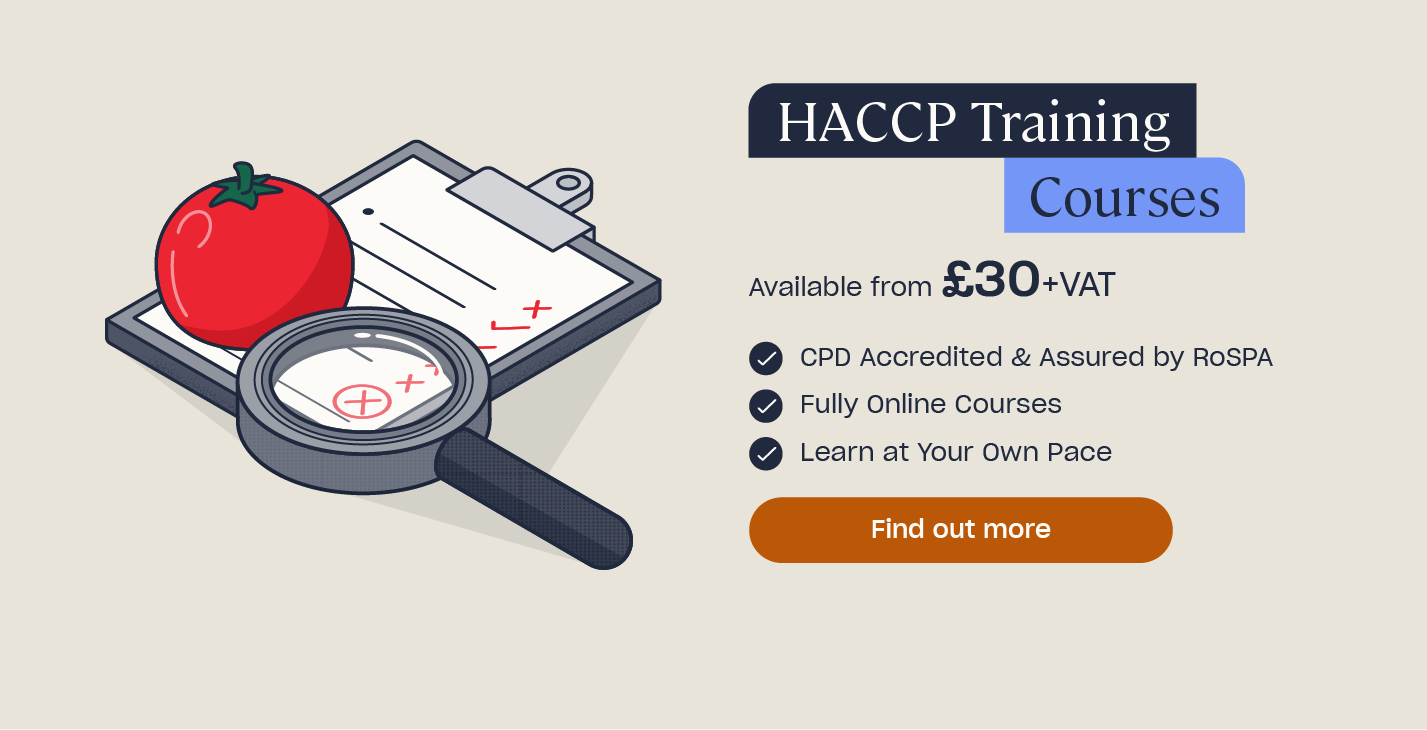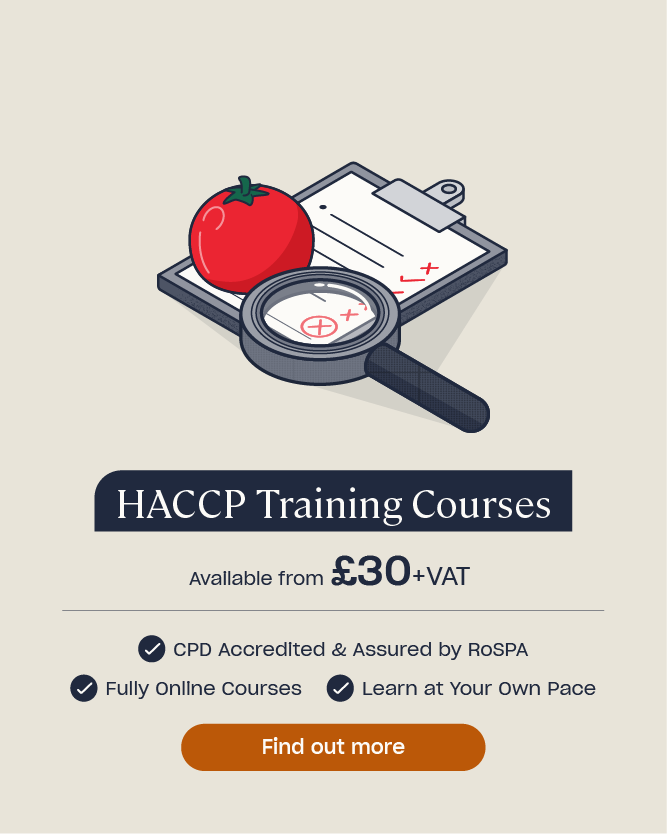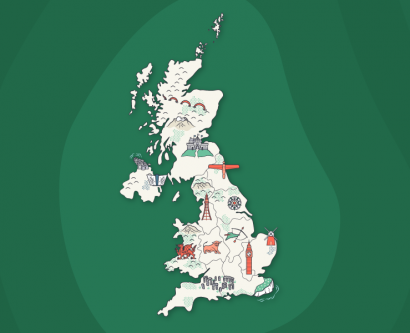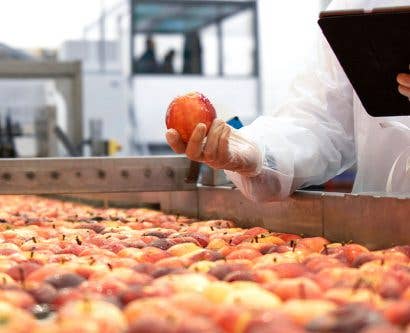What is ISO 22000 – Food Safety Management?
Keeping food safe at all points during the food supply chain is vital for both consumer safety and legal compliance. To ensure your food business can consistently produce safe food products, it must implement an effective food safety management system based on the principles of HACCP, and this is where an ISO 22000 certification can help. In this article, we’ll look at what an ISO 22000 food safety management system is, why ISO 22000 is important and how to get ISO 22000 certification for your food business.
What is ISO 22000?
ISO 22000 is an internationally-recognised standard that sets out the requirements for an effective food safety management system. All businesses that handle food, whether manufacturers, caterers or retailers, have a legal responsibility to ensure the food they produce is safe for consumers to eat.
Having an ISO 22000 food safety management system (FSMS) in place means you can always ensure this is the case and can reassure consumers that your food products are always safe and hygienic.
ISO 22000 explains what businesses need to do to demonstrate their ability to control food safety hazards at all points of the food supply chain. This includes having thorough procedures in place to control all types of food safety hazards:
- Physical hazards, like bits of packaging or machinery.
- Chemical hazards, such as toxins and cleaning products.
- Microbiological hazards that cause food poisoning.
- Allergenic, from cross-contamination of allergenic ingredients.
Want to Learn More?
Need to implement a HACCP food safety management system in your food business? Our full range of online HACCP training courses are suitable for all food businesses in all industries and will teach you everything you need to know about creating an effective food safety management system that can be used as the basis of your ISO 22000 application.
Importance of ISO 22000 Food Safety Management System
Implementing an ISO 22000 food safety management system helps your organisation to improve its overall performance when it comes to food safety.
All food businesses must look to improve food safety by reducing risks and following the Codex HACCP Principles. HACCP – Hazard Analysis and Critical Control Point – is the basis for a food safety management system that enables you to comply with food hygiene law and ensure that the food you produce is safe for consumers to eat.
The Codex HACCP principles are an internationally-recognised series of guidelines that provide the foundation for most national food safety laws. ISO 22000 is based on the Codex principles for food hygiene and their prerequisite programmes, so it ensures that your business is meeting all the criteria for food safety expected by the government and local authorities. Find out more about the basics of HACCP in our HACCP FAQ.

Other benefits of having an ISO 22000 FSMS include:
- The food products you provide will be consistently safe for consumers, with reduced risk of contamination.
- Food safety controls are robust and effective so contamination and threats to food safety are at a minimum.
- You’ll be able to guarantee that your food products always meet regulatory requirements.
- Better risk management across your organisation, processes and throughout the whole food supply chain.
- Customers and suppliers will have more confidence in your food products and your ability to reduce and manage risks to food safety.
- The FSMS you use will be internationally-recognised, giving you more credibility and improving accountability and transparency.
- You’ll have a system that works, is continually assessed and that is regularly updated and improved to ensure effectiveness.
ISO 22000 Requirements
ISO 22000 certification can be obtained by any type of food organisation at any point of the food chain. All food businesses – whether manufacturers, caterers or retailers – need a robust food safety management system in place, regardless of their size or type of food produced or handled.
The ISO 22000 requirements are designed to be integrated into your existing HACCP food safety management system, so you should already be able to tick off many of the requirements straight away. An ISO 22000 FSMS can be created as a stand-alone system but it works much better when integrated into your existing food safety processes.
If you’re new to HACCP and need to understand the basics of what it involves and how to implement a HACCP-based food safety system, take a look at the online courses below that are tailored to each type of food business:
- Level 2 HACCP for Manufacturing
- Level 2 HACCP Training For Catering & Retail
- Level 3 HACCP for Manufacturing
- Level 3 HACCP Training for Catering & Retail

How to Get ISO 22000 Certification
Whilst certification gives your FSMS credibility and international recognition, getting ISO 22000 certification is not always necessary for all food businesses. Your business can still benefit from using the principles of ISO 22200 – and use them to create a robust food safety management system – but not go on to seek official certification.

If you do wish to obtain ISO 22000 certification for your organisation’s food safety management system, then you’ll need to follow a series of thorough steps:
Step 1: Understand the ISO 22000 requirements
It’s important to familiarise yourself with the requirements and expectations of the ISO 22000 standard. To create an ISO 22000-compliant FSMS, you’ll need to understand how the standard applies to you and your operations. You’ll also need a good understanding of HACCP and general food hygiene and safety practices. You can purchase a copy of the ISO 22000 standard here.
Step 2: Undergo a stage 1 assessment
A stage 1 assessment is done to check whether your food safety management system meets the requirements of the ISO 22000 standard or whether improvements are needed. After the assessment, you’ll receive an audit report that highlights the actions needed in order to achieve certification. You must action these changes in order to move onto stage 2.
Step 3: Undergo a stage 2 assessment
A stage 2 assessment is a more in-depth review of your food safety management system by an official auditor. The auditor will look at all your operations, procedures and processes to check whether they meet the ISO 22000 requirements or if more is needed. Again, advisory notes will be given if changes are needed in order to obtain certification and these must be actioned.
Step 4: Receive and maintain your ISO 22000 certificate
If your organisation’s FSMS passes the stage 2 assessment, and no further remedial actions are required, then you’ll be awarded the ISO 22000 certification. The ISO 22000 certification is valid for 3 years (like all ISO certifications) and requires regular audits in order to be maintained.
An ISO 22000 food safety management system is an internationally-recognised set of principles for ensuring your food business has effective HACCP food safety procedures in place. When the ISO 22000 requirements are followed – and if certification is obtained – your food business will be able to prove that it takes all reasonable steps to ensure food hygiene and safety for consumers and can ensure the products it makes or handles remain continually safe to eat.
Further Resources:
- HACCP Training Courses
- Promoting a Food Safety Culture: Free Assessment Guide
- What are the 7 Principles of HACCP?
- What is a HACCP Decision Tree?
- 28 of your HACCP Questions Answered
- What You Need to Know About the SALSA Standards











